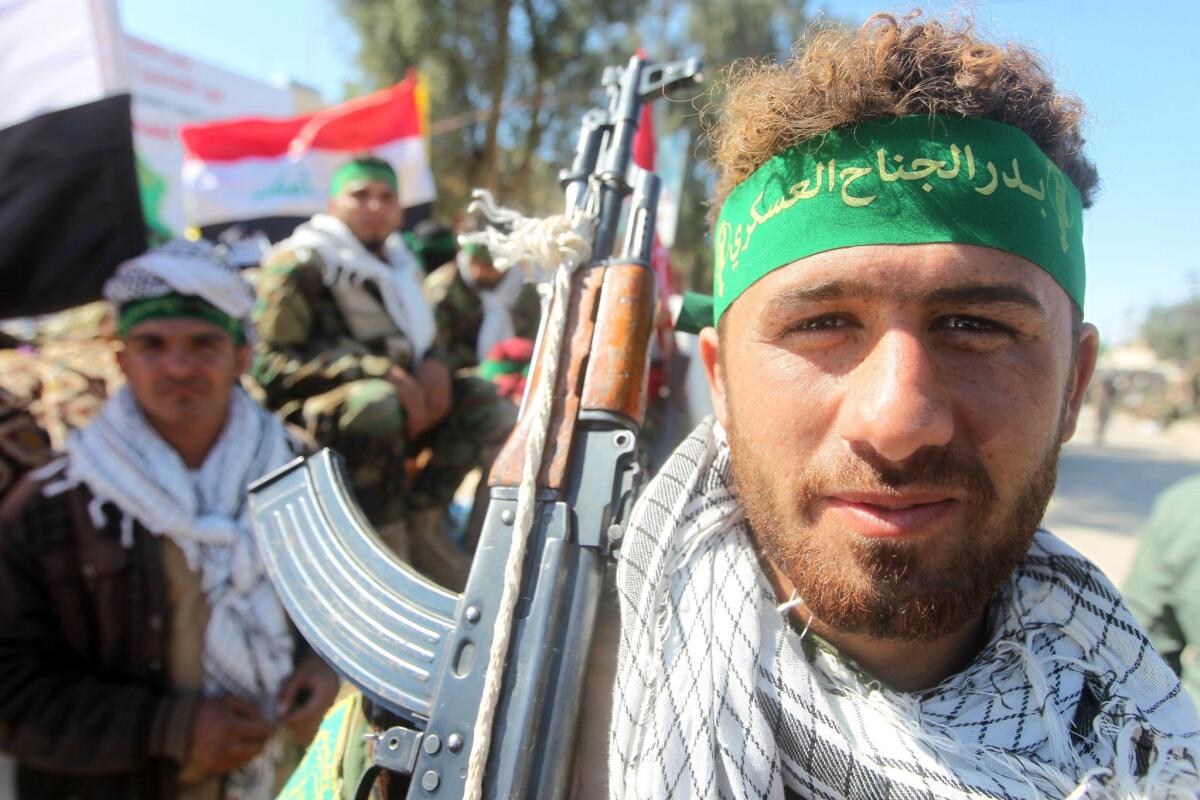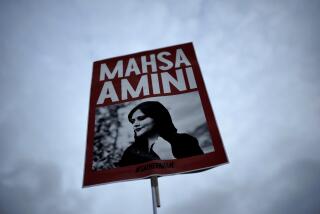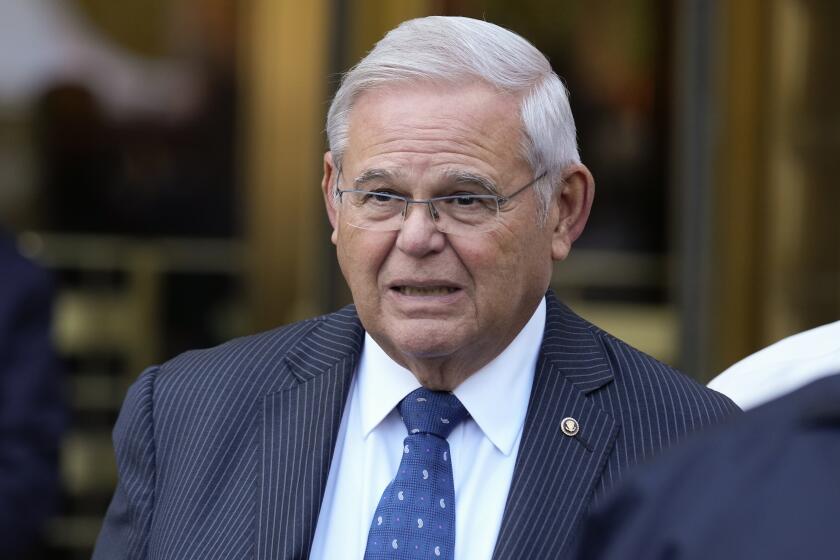Iraqi leader warns troops against reprisals as they attack Tikrit

As Iraqi forces pressed their advance Thursday on the militant-held city of Tikrit, Prime Minister Haider Abadi moved to quell concerns of sectarian-fueled retribution against civilians, urging troops “to respect human rights and preserve [civilian] property.”
Abadi assured U.N. Secretary-General Ban Ki-moon in a telephone conversation that authorities would “punish any transgression against civilians in the areas of military operation,” according to a statement from the prime minister’s office.
The declaration — the latest calling on combatants to refrain from targeting civilians — underscores widespread concern in Iraq and elsewhere that Shiite Muslims fighters aligned with the government could carry out revenge attacks during the military advance through largely Sunni Muslim Salahuddin province.
Since last June, Tikrit has been under the control of Islamic State, a Sunni extremist group and Al Qaeda breakaway faction that has declared a “caliphate” across broad swaths of Iraq and neighboring Syria.
In earlier, smaller-scale campaigns elsewhere in Iraq, human rights monitors and Sunni activists have alleged unpunished abuses by Shiite militiamen, who have become a crucial component of pro-government forces pushing back Islamic State militants.
The prime minister’s latest comments come as political and religious leaders across Iraq’s Sunni-Shiite divide have stressed the importance of avoiding civilian casualties and reprisal killings.
Deputy Prime Minister Saleh Mutlak, a prominent Sunni, has called on security forces to honor “the lives of civilians and their properties.”
On Wednesday, the White House also urged Iraqi officials to avoid exacerbating sectarian tensions during the assault on Tikrit, a strategic and highly symbolic provincial capital about 100 miles north of Baghdad along the Tigris River.
The Iraqi government also has boasted of thousands of Sunni tribal fighters joining the ranks of the Popular Mobilization Units, the mostly Shiite volunteer brigades helping to spearhead the attack on Tikrit. Many Shiite militiamen have received training and equipment from Shiite Iran, which shares a long border with Iraq.
Iran appears to be playing a larger role in the Tikrit operation than the U.S.-led coalition that has conducted hundreds of airstrikes against Islamic State in Iraq since last summer. U.S. officials say they have not been asked to provide air support in the Tikrit assault.
Militants from Islamic State have repeatedly slaughtered Shiites, whom they view as apostates, during their advances through Iraq and Syria. The killings, some videotaped and uploaded onto the Internet, have enraged Iraq’s Shiite majority.
Hundreds of Shiite soldiers and policemen were reported executed last summer as Islamic State extremists swept through Tikrit and overran much of Iraq’s Sunni heartland to the north and west of Baghdad.
Earlier this week, authorities said, as many 30,000 loyalist forces — including many Shiite militiamen -- launched the offensive to retake Tikrit. It is the largest Iraqi government initiative to date to take back national territory lost to Islamic State.
Authorities have reported steady progress as troops attempt to cut off Tikrit from the south, east and north. But roadside bombs, mines, suicide attacks and snipers have slowed the advance, according to reports from Iraq. The main thrust on the city has not yet begun, according to Iraqi media and other reports.
The attack is widely seen as a potential dry run for a government assault on the northern city of Mosul, the Iraqi capital of Islamic State’s self-declared “caliphate.”
Last summer, Iraqi military forces retreated en masse in the face of the Islamic State blitz, which in some cases was joined by local Sunni fighters opposed to the central government. This time around, Iraqi officials say their forces are better prepared. The battle will likely be seen as a test of the government’s ability against the extremists.
Most civilians are reported to have fled from Tikrit, once a city of more than 200,000. But government authorities have charged that Islamic State militants have prevented some residents from leaving.
Tikrit has strong symbolic importance for many Sunnis since it was the birthplace of Saddam Hussein, the late Iraqi president deposed in the U.S.-led invasion in 2003. The overthrow of Hussein, a Sunni, helped empower Iraq’s long-repressed Shiite majority to take over the national reins of power. A bloody Sunni-Shiite civil war raged in 2006-08, during the U.S. occupation. Many Sunnis have accused the Shiite-led government of marginalizing them.
Islamic State militants, meantime, have posted images on social media purporting to show that their forces are holding firm in Tikrit and surrounding towns and villages.
“You have claimed, as usual, that you stormed the lands of the Sunnis,” said one unidentified fighter, mentioning names of Tikrit and nearby towns in a video provided by SITE Intelligence Group, which monitors the militants’ website. “By God, you have lied.”
Times staff writer McDonnell reported from Beirut and special correspondent Bulos from Amman, Jordan.
Follow @mcdneville on Twitter for news out of the Middle East
More to Read
Start your day right
Sign up for Essential California for news, features and recommendations from the L.A. Times and beyond in your inbox six days a week.
You may occasionally receive promotional content from the Los Angeles Times.






